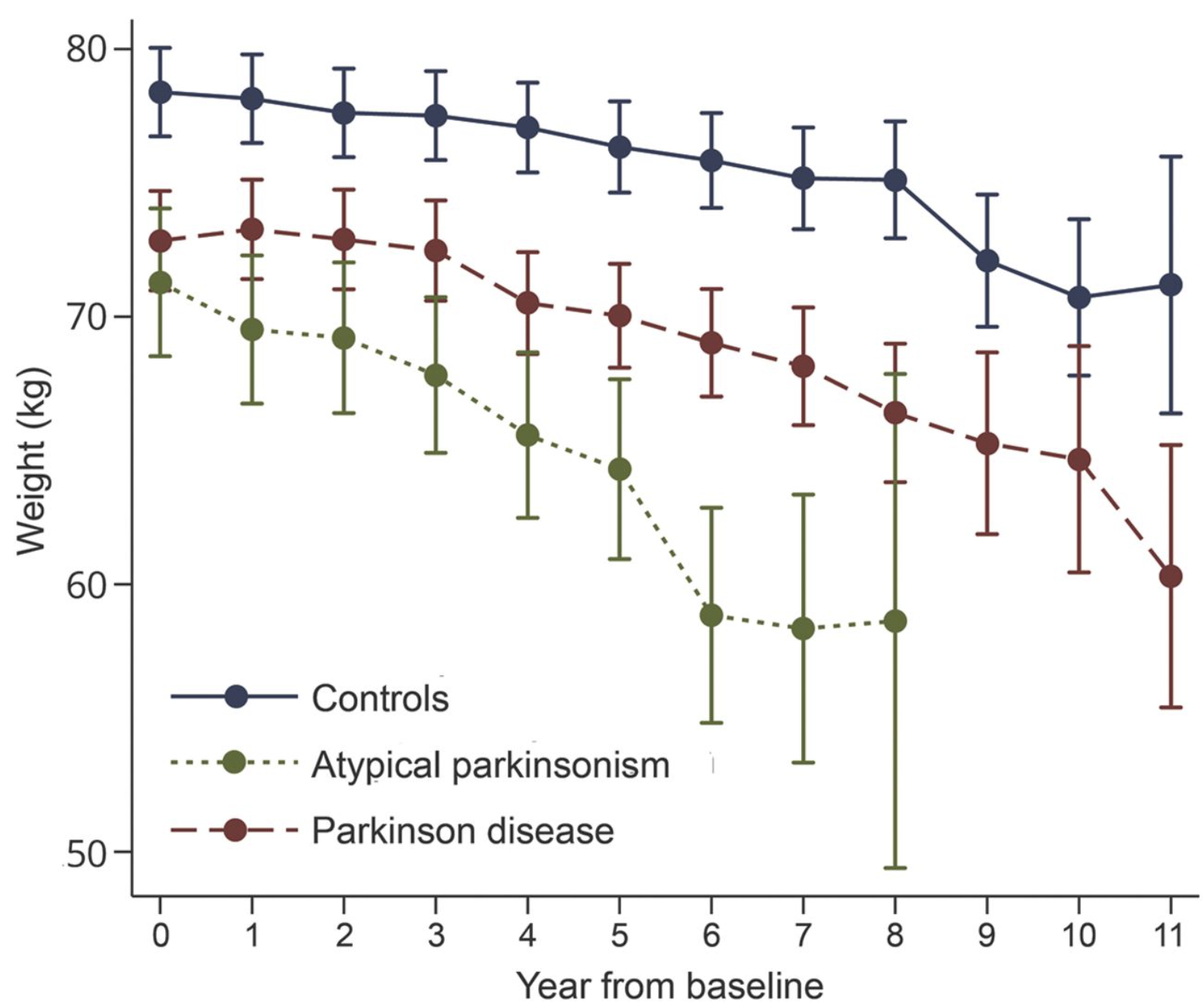Why a Parkinson's goal should be to stay above your ideal body weight
One well known feature of Parkinson’s disease is that there is a gradual and slow loss of weight over time. If you lose too much weight, you may contribute to frailty and other medical issues. It is important therefore to try to maintain your weight with Parkinson’s. Check out our facebook video on why a Parkinson’s goal should be to stay above your ideal body weight.
A recent article by Cumming and colleagues in the journal Neurology compared the gradual weight loss in Parkinson’s disease vs. controls (people without Parkinson’s). It was more pronounced in Parkinson’s disease. Additionally, these authors collected a group with atypical parkinsonism— and that group had the most pronounced weight loss over time (even more than in Parkinson’s disease).
Here are a few tips to maintain a reasonable weight with Parkinson’s:
Significant weight loss in Parkinson’s can lead to a reduced quality of life, decreased bone health, risk of fractures and higher risk for infections. It can lead to fatigue and malnutrition.
There are many causes for weight loss in Parkinson’s including a decreased appetite and an increased energy expenditure. It can also be caused by gastric motility issues.
You and your doctor can calculate your ideal body weight using many publicly available formulas. Here is one free ideal body weight formula provided by Dr. Pai at Albany University.
In general we recommend trying to stay above your ideal body weight, but to stay below the weight level for obesity— the obesity level is where there could be adverse health effects from being “too heavy.”
A good rule of thumb, is that in Parkinson’s it is better to be a little heavier, than a little lighter.
Avoid “fad” and “quick” weight loss diets.
Try to eat healthy and remember that you can utilize the nutritionist to track your weight—and to help you to eat healthy.
Staying above your ideal body weight with Parkinson’s should be a goal (if possible).
Here are some weight management tips from the Parkinson’s Foundation.



